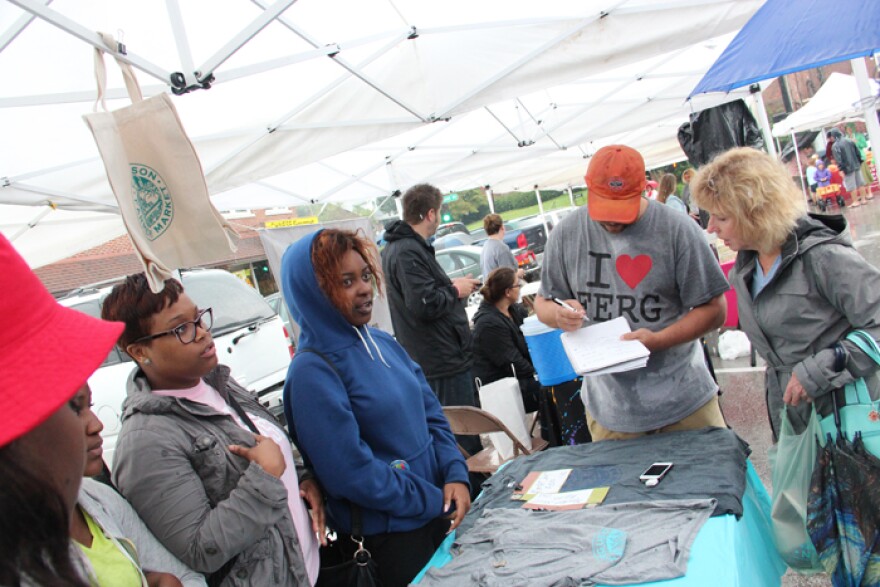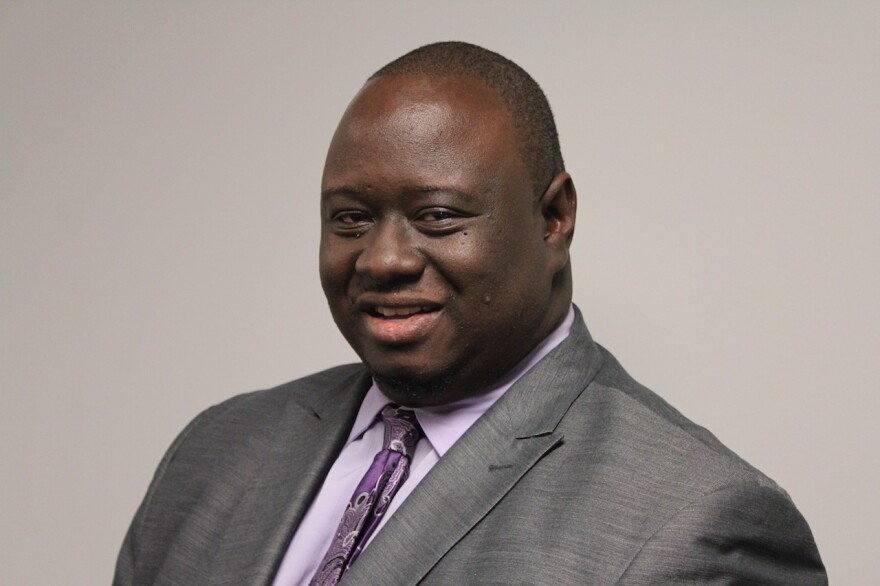Even when he was far away, De’Carlon Seewood couldn’t look away from what was happening in Ferguson.
At the time, Seewood was the city manager of Richton Park, Ill., a southwest suburb of Chicago. His 18-year career in local government included a stint as an assistant city manager in Ferguson and city manager of Berkeley, two communities that have gone through some turmoil over the past year.
“I really love the community,” Seewood said. “My daughter goes to school here. ... She’s now at McCluer [High School]. Just being in Richton Park and looking at everything that was going on in the news and looking at everything they were saying about Ferguson. I want to be part of moving Ferguson forward. I want to be part of the change that needed to happen.”
Seewood was recently selected to be Ferguson’s city manager. He'll run the day-to-day operations of a city that was engulfed in national controversy after the shooting death of Michael Brown. He sees three big challenges ahead: Restoring the city’s troubled finances, improving Ferguson’s police department and rebuilding trust in city government.
“I think after everything that’s gone on, there’s a lot of mistrust with us,” Seewood said. “So we have to go back out and engage the citizenry – and let them know exactly what we’re doing and why we’re doing it.”
A big role
Soon after a scathing Department of Justice report of Ferguson’s police department and municipal court came out, then-Ferguson City Manager John Shaw stepped down. And after several people stepped in on an interim basis, Seewood was selected to be the permanent city manager.

One big misconception during the Ferguson unrest was that the city’s mayor holds most of the power in city government. While Ferguson Mayor James Knowles does have a friendly majority on the Ferguson City Council, it’s the city manager that actually oversees the city departments.
“The mayor and the elected body, they’re policymakers. So you think of them as the legislative branch. They set policy,” Seewood said. “The job of the manager is to do the day-to-day operations. So the police chief, the fire chief, the public works director – they all report to the city manager. Putting together the budget that says ‘this is where we’re spending on,’ that’s the job of the city manager.”
Seewood will be responsible for picking a new chief for the city’s beleaguered police department. He said he’s looking for somebody who can buy into the concept of “community-oriented” policing.
“When I was in Richton Park, we did the National Night Out. And every year, it got bigger and bigger and bigger,” Seewood said. “And we’re talking about 500 to 600 to 700 people coming for this event that dealt with meeting the police officers, working with the police officers, talking to the police officers and getting to know our officers.”
Plugging a financial hole
Seewood said a more immediate concern is plugging what he says is a $2.8 million deficit in the city’s budget. During the last budget cycle, Seewoodsaid the city used its reserves to plug its fiscal hole.He said the city’s leaders would have some big decisions for the upcoming fiscal year.

“The budget they passed recently was a mirror of the last budget. So the deficit’s still there,” Seewood said. “So we still need to work through the process of how do we figure out how to cut back. So this budget for the upcoming fiscal year from 2016 to 2017, that’s where you’re going to see the changes.”
Seewood emphasized that a recently enacted municipal governance overhaul won’t impact Ferguson that much.That new law lowered the percentage of traffic fine revenue cities could keep in their budgets from 30 percent to 12.5 percent. Both Seewood and Knowles have said traffic fines constitute a relatively low percentage of Ferguson’s budget.
“I think there’s a misnomer with Ferguson was that 50 percent or 70 percent of their budget was fines. It’s actually a very low part of the budget,” Seewood said. “The new caps are put in by the legislature – was it 12.5 percent? That really won’t affect what we’re doing.”
Consent decree looming
Ferguson is still in the process of negotiating a consent decree with the federal government. The St. Louis Post-Dispatch recently reported about that Ferguson’s elected officials don’t like how the Department of Justice isn’t providing enough opportunity for public input into the cost of a federal monitor and what the consent decree will force the city to do.

If the city council adopts a consent decree, Seewood said his office will be in charge of carrying it out.
“If we get to the point where the council passes a consent decree, then it still has to go before a judge,” Seewood said. “And during that process when it goes before a judge, there’s a fairness hearing. So during that fairness hearing, there will be opportunities for citizens to weigh in on what’s being proposed, what’s being talked about.
“They’ll give them plenty of time to give their thoughts, their position and what they want and what they want to see in the process,” he added.
Looking ahead
After Brown’s death, some critics lambasted Ferguson’s city government for lacking racial diversity. Since last August, African Americans hold three out of the seven seats on the City Council. And black officials have held key interim and permanent staff positions.
Seewood said the infusion of racial diversity is “going to bring different ideas and different opinions.”

“And as you have more diversity among the council and more diversity among the staff, you have more diverse opinions about the ways of handling things,” Seewood said. “So it brings everybody’s opinion to the table. So we’re all talking about where we want to go. And we may not agree. But as long as we work toward an agreement, I think we’ll get to some wonderful places.”
He said that in the next few years, he hopes Ferguson can become a “premiere” community in north St. Louis County and the greater St. Louis region. And that involves getting ordinary people involved in local governance.
“A lot of times people have this opinion where my vote doesn’t matter, my word doesn’t matter – so I don’t count,” Seewood said. “But … local government has more control over their day-to-day lives than any other layer of government. So residents have to understand that they have to come to the city council meeting and tell us what they want. They need to go to those community meetings and say ‘Hey, here’s my opinion, here’s my thought.’ Get involved and be part of the solution.”
On the Trail, a weekly column, weaves together some of the intriguing threads from the world of Missouri politics.









